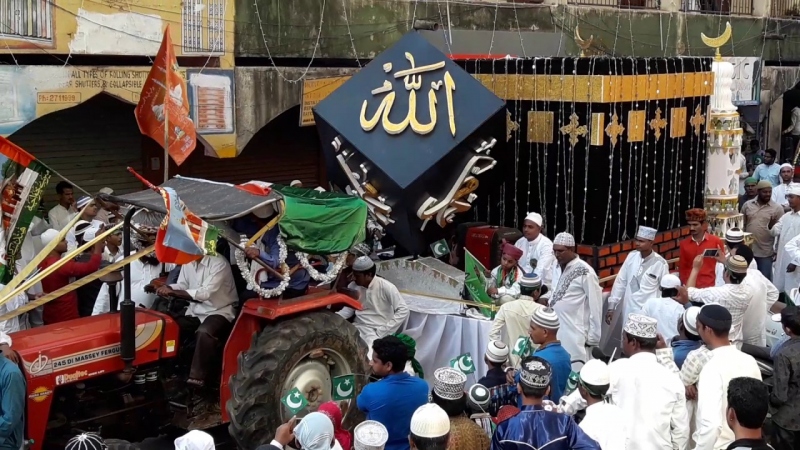First celebrated as an official festival in Egypt , Eid-e-Milad celebrations became more popular during the 11th century and reminds people about the prophet Muhammad’s good character, his way of worshipping, and his way of treating people

Eid-e-Milad is one of the most important festivals of theMuslim community in Goa and across the world, celebrated with great religiousfervour to commemorate the birth of the Prophet Hazrat Muhammad. The festivalis also known as Eid Milad-un-Nabi.
In colloquial Arabic, Mawlid means to birth or bear achild. It is believed that the Prophet was born in Mecca on the twelfth day ofRabi ul Awal in 570 CE and his parents were Abdullah and Aminha. The day isdedicated to the Prophet and the dogmas of Islam.
It is celebrated by the Shias on the 17th of Rabi ul Awalmonth while the Sunni celebrate it on 12th of the same month, according toIslamic calendar.
It is said that the Prophet introduced Islam and thenrevolutionised the religious scene in the Middle East in the following years.It also brings happiness to the Muslim community. The festival is also known asBara Wafat (twelfth death) of the Prophet, hence also a day of mourning.
After the death of the Prophet, his house was convertedinto a prayer house by one of his successors. Eid-e-Milad celebrations becamemore popular during the 11th century and it was first celebrated as an officialfestival in Egypt.
During this period, only Shia Muslims, who were theruling tribe in the region, could celebrate the festival and was not extendedto the general public. In the 12th century, other countries such as Syria,Morocco, Turkey and Spain also started celebrating Eid-e-Milad and soon, SunniMuslim too started celebrating the day.
In ancient times, the festival was performed muchdifferently as compared to modern times. As it was first started in the 11thcentury in Egypt by the leading clan, they played an important role in thecelebration. People started their day by offering prayers. After this, peoplefrom the ruling clan gave speeches and recited the verses from the Holy Quran.The festivities culminated with a large public feast.
However, over the years, practices got modified and heavyinfluence of some Sufi practices like animal sacrifices, public discourses,torchlight processions during nightfall and a banquet to its public, dominatedthe celebration.
People of the ruling clan were honoured, as they werebelieved to be Caliphs, which were considered to be representatives ofMuhammad.
On this auspicious day, Muslims clean their houses,mosques and streets. They start the day with a morning prayer, which isfollowed by a procession and gathering in mosques.
Children narrate stories of prophet Muhammad, about hislife and preaching as mentioned in the Holy Quran. People wear new clothes,while marches and parades involving large crowds are organised. Festive bannersand bunting on and in homes, mosques and other building are put. Communal mealsin mosques and other community buildings are also organized.
Many people carry green flags or banners or wear greenribbons or items of clothing when taking part in these events. The colour greenrepresents Islam and paradise.
On this occasion, families and friends gather togetherand prepare feast which is then served to the guest and is also meant to bedonated to the poor. Donating to charity is also considered an important aspectof the Eid Milad un Nabi.
However, many of these celebrations will be cancelled orsubdued in Goa this year on account of the Covid pandemic.
The basic purpose of celebrating Eid or gatherings is aneffective and efficient means for the calling people to Islam and educatingchildren about the teachings of holy Prophet Muhammad. It also reminds thenation about the prophet Muhammad’s good character, his way of worshipping, andhis way of treating people.
(The writer is former director of Thomas Stephens KonknniKendr at Porvorim)